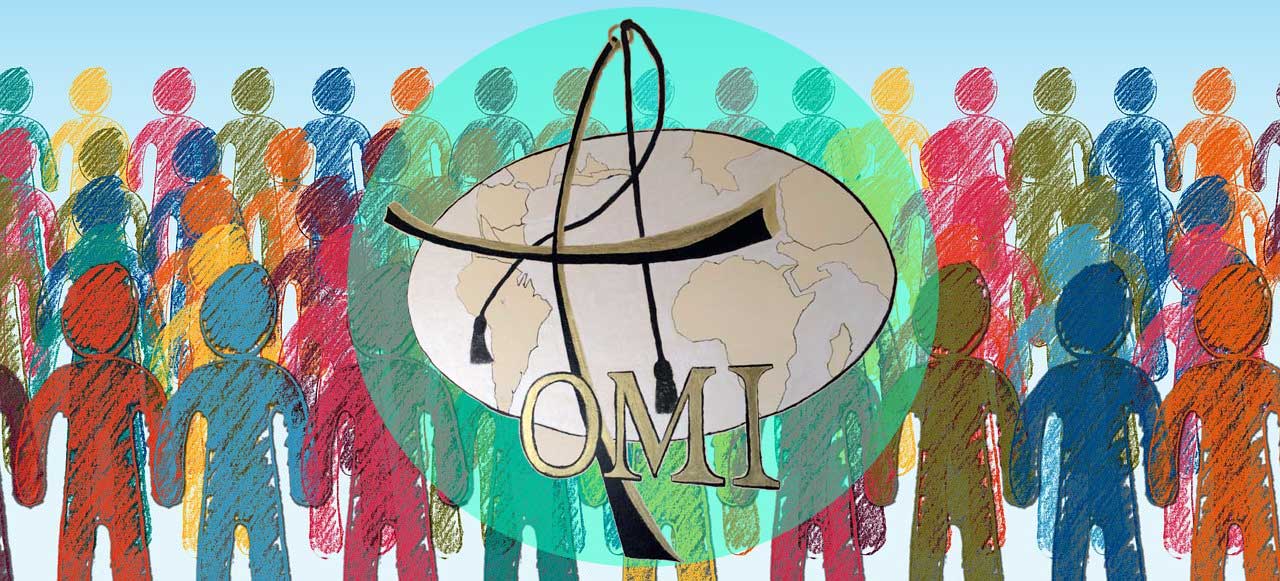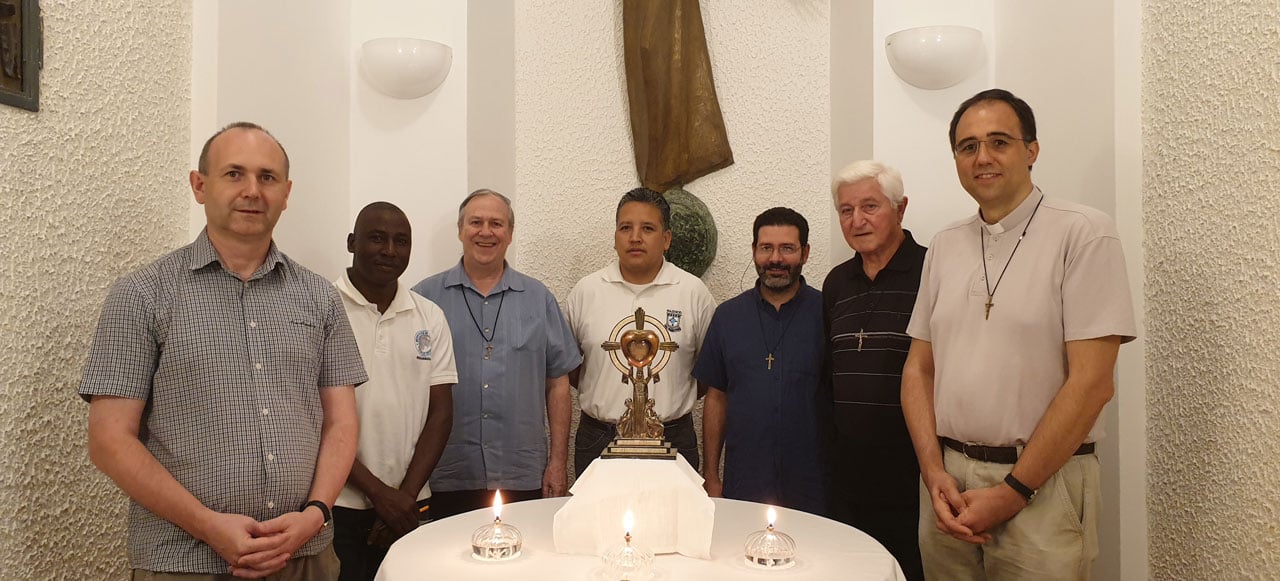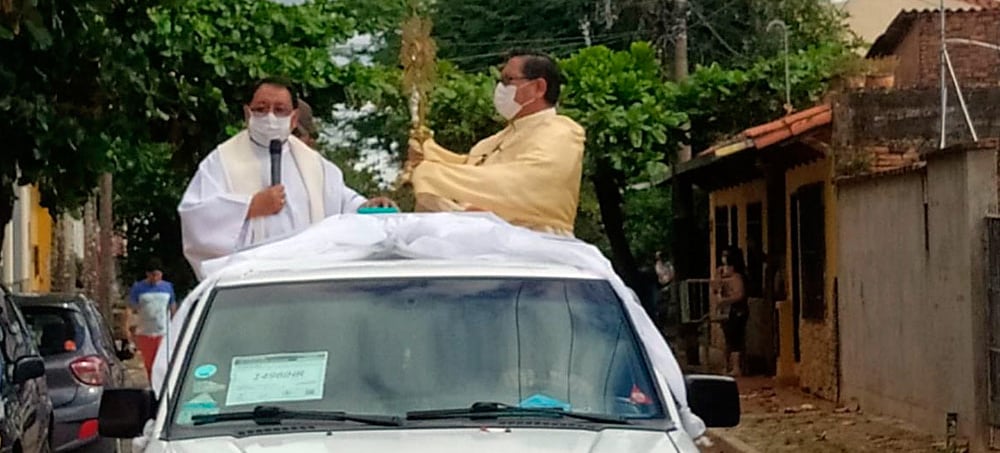Fr. Ross B. Kapunan, OMI
Our Lady of the Assumption Scholasticate (Quezon City, Philippines)
Introduction
The persistent ethnic conflict that we encounter in the world today even in much more pluralistic and multicultural societies reflects among others a failure in intercultural living.[1] As Gittins would say, we can actually live together separately. In other words, we may cross paths everyday but may never have crossed each other’s lives. One most current event that exhibits evidently this intercultural struggle is how the black people are perceived and treated in the United States, which gave rise to the “black lives matter” protests. The apparent prejudice based on the color of the skin manifest a deep-seated cultural divide: the white skin over the black, red, yellow or brown. Needless to say, humanity has yet to overcome racial bias based on skin color up to this very day. Among us Oblates, can we also honestly examine ourselves where are we in this regard? The 2016 General Chapter document describes vividly our experience in the congregation saying “The difficult meeting of cultures also affects us as Oblate missionaries. Oblates who arrive in a new Unit for mission do not always have a positive experience.”[2] Thus, a missionary formation enabled in a multicultural context becomes increasingly more relevant and indispensable today.
The Our Lady of the Assumption Scholasticate of the Philippine Province has become truly international/multicultural in recent years.[3] From three nationalities in the beginning, it grew into eleven during the last four years. Now, we have post-novices coming from Kenya, Cameroon, Lesotho, Congo, Thailand, Vietnam, Sri Lanka-Jaffna, South Korea, Hong Kong-China, India and Philippines. The formation team is likewise composed of different nationalities from the Philippines, Sri Lanka-Jaffna and Lesotho. But to become a truly intercultural community still remains a process. In any case, a big step has already been made. Formation to interculturality can only happen between and among members of the community that come from diverse cultural origin.
In line with the theme, what then are some of the opportunities as well as the challenges of doing formation in an international/multicultural context? Allow me to share some thoughts and experiences which do not in any way claim to capture all the common experiences but hoping that it will offer some points for reflection and further discussion.
Some Opportunities
1.Experience of the internationality of the congregation
Going out of one’s own country and experience living in another already brings immense opportunity. Travel is one opportunity that one does not want to miss! We may say that information technology has already made us aware of the internationality of the congregation. However, to experience internationality is a different matter. The opportunity, therefore, is in the experience itself! Experience is essential in the formation to interculturality. It can only happen when people of diverse cultural provenance actually experience living with each other.
2. Experience of diversity of cultures
Living together under one roof with eleven different cultural upbringings is not by all means a comfortable experience. As the saying goes, it is more natural for “birds of the same feathers (to) “flock together”. For this reason, living with others so different from oneself truly needs an intentional commitment. It can be a very stressful experience when each one behaves and thinks in a different manner. Nonetheless, this experience of diversity can also become an exceptionally exciting experience. It only requires an adventurous spirit and an inquisitive and appreciative mind to turn around the unpleasant experience into a fantastically enriching one. Without noticing it, after some years one can develop a “taste” of the other culture. The once unusual taste becomes familiar; the repulsive becomes delicious as in the case of durian and balut.
3. Learning a new language or two
Obviously, to learn a new language is a great opportunity. Here English is the language of the community but we have also organized Filipino language classes. This will give the post-novices and the formation team a good opportunity to communicate using the language of the common people especially the poor in the areas of apostolate who are not proficient in the English language. It will likewise be a great advantage to learn the Filipino language as we all know the Filipinos are scattered in all the corners of the world (even in Lesotho!).
4. A broader missionary outlook
On a deeper level, the experience of formation in a culturally diverse context advances a global vision of the congregation and of the mission. The exchange of experiences from diverse missionary contexts enlarges one’s vision of the Oblates’ missionary work. It considerably opens up the possibility of being sent as a missionary to another country. Psychologically speaking, it prepares future Oblates to be missionaries ad extra.
5. To be stretched and tested
The most difficult one but also the most beneficial of all is the opportunity to be tried and tested. It serves as an occasion to become more mature. The apostolic man must learn to adapt to a new environment. Only those who can persevere in difficult and unfamiliar situations can also persevere wherever they will be sent.
Some Challenges
1.Inadequate psycho-emotional preparedness
Some post-novices come with heavy emotional baggage leaving their family and home province. A case in point: it took one scholastic a semester to come out of loneliness from being separated from his family for the first time. He did not eat nor sleep well. He would often call back home. He was not personally equipped to adapt to a new environment after being uprooted. Nevertheless, it had also become for him an opportunity to grow. In my own analysis, he was not psycho-emotionally prepared before he was sent. This should also be kept in mind before sending a missionary outside of his home province for the first time.
2. Narrow missionary orientation
The lack of expansive missionary orientation also poses a challenge. Post-novices from units that have an inward outlook, which are probably unconsciously encouraged even by their own units, have difficulty entering into the culture of others. They tend to stick together and always think of returning to their home unit after their formation. This orientation can hinder their full and active effort to learn and appreciate the language and culture of the receiving unit and much more to integrate into their way of life and mission. That we belong to a global congregation needs to be strongly emphasized.
3. Cultural conflicts (especially ecclesial and Oblate culture)
There is inherently in every person a sense of pride of his own culture. He/she treats his/her own as the best of all. When he/she comes to meet another culture his/her tendency is to assert the usual
traditions, methods or manners at home. It is normally prefaced with “in our country it is done like this…” Hence, it is naturally anticipated that cultural conflicts arise in a culturally diverse community. However, based on experience the more contentious conflicts are coming rather from the differences in ecclesial and Oblate culture[4]: the way things should be done, behavioral norms, liturgical practices, organization of common life, exercise of authority, etc… In other words, there are tendencies in each one to be culturally rigid. In a survey I conducted, some of these manifestations were articulated as imposing one’s culture to others, high demand on others but not from oneself, “half-hearted open mindedness”. A good interculturality orientation session is extremely needed in order to address this issue.
4. Movement from ethno-centric to ethno-relative worldview
The movement from ethno-centric[5] to ethno-relative[6] worldview is one of the ultimate challenges to formation in an international/multicultural context. It involves a deeper examination of one’s own culture. It requires a movement from denial[7], polarization[8] and minimization[9] to attitudes of acceptance, adaptation and integration. A good indication of this is when formands learn to appreciate another culture, open to learn new things, acceptance of current realities, seeking to understand, curiosity, etc. Conversely, a negative sign is indicated when there is the tendency towards rigid self-preservation, racial bias, isolation, exclusion, etc…
Conclusion
In conclusion, Gittins reiterates that God created an inclusive community and thus we are called to build a home where all can live and everyone belongs. What interculturality in formation hopes to achieve is to develop respect for the culture of another that shows itself in authentic interpersonal relationships as well as appreciation of the cultural genius itself… This is apparently the task of interculturality in Oblate formation. How to bring everyone to an intentional commitment and to concretely live it out remains the challenge.
————————-
[1] By intercultural living we mean a “mutual exchange between cultures that can lead to transformation and enrichment of all involved”
[2] #57
[3] To be truly intercultural always remains an ongoing process
[4] Trivial cultural conflicts include whether food should be spicy or not; saltier or less; etc.
[5] The experience of one’s own culture as central to reality or the reality itself. One’s beliefs and behaviors remain
unquestioned thereafter and are accepted as “just the way things are”.
[6] One’s culture is experienced in the context of other cultures. Ethno-relativists are conscious of cultures other than their own and consequently adapt their approach and monitor their instinctive reactions to the “other”.
[7] A crude attempt to disregard cultural differences entirely. Avoid noticing or negotiating cultural differences.
[8] The state in which one’s culture is the only viable one; the most evolved form of civilization, or at least the only good way to live.
[9] The state in which elements of one’s own cultural worldview are experienced as universal. It assumes that there is only one universal way of doing it and that is my own.



